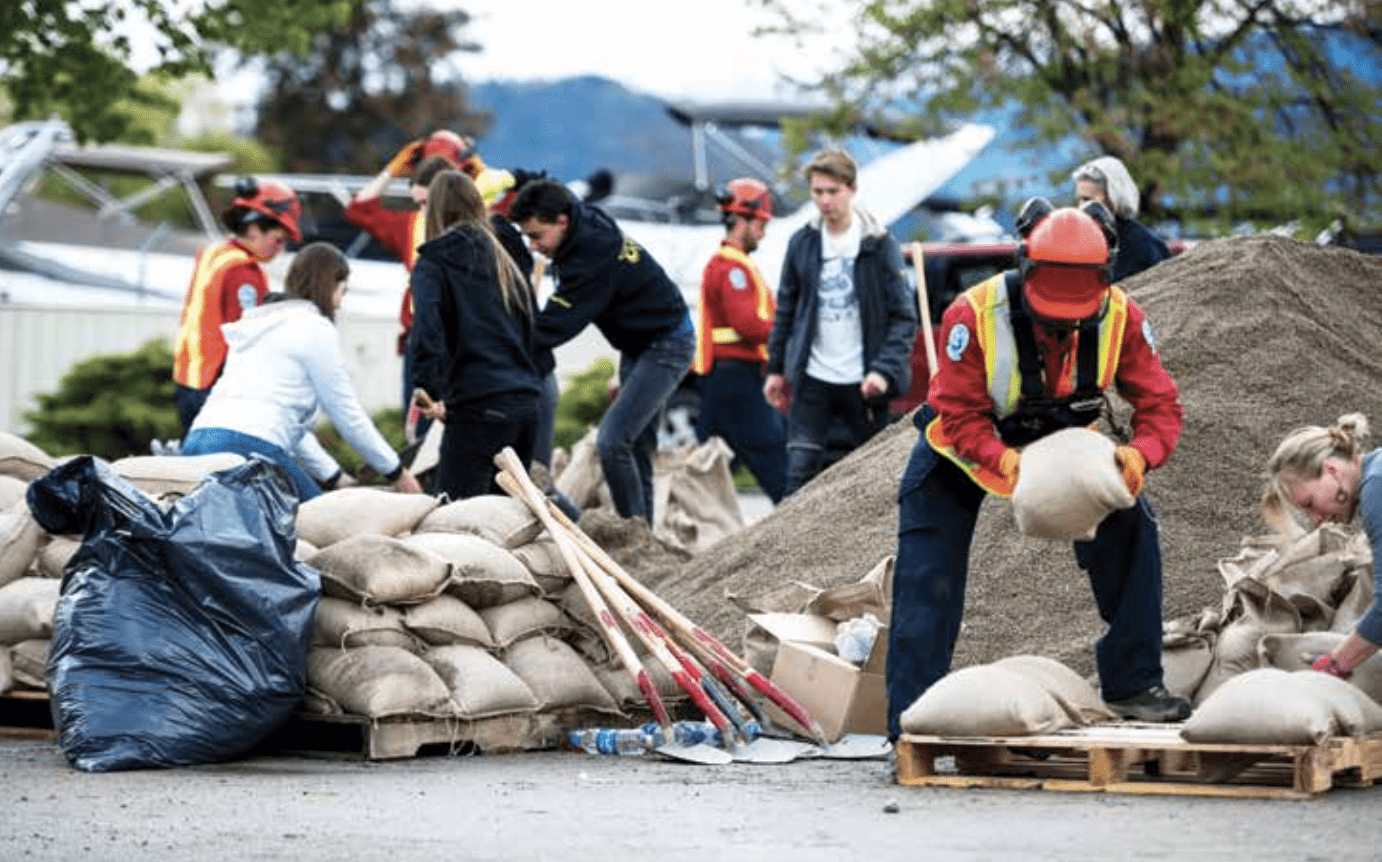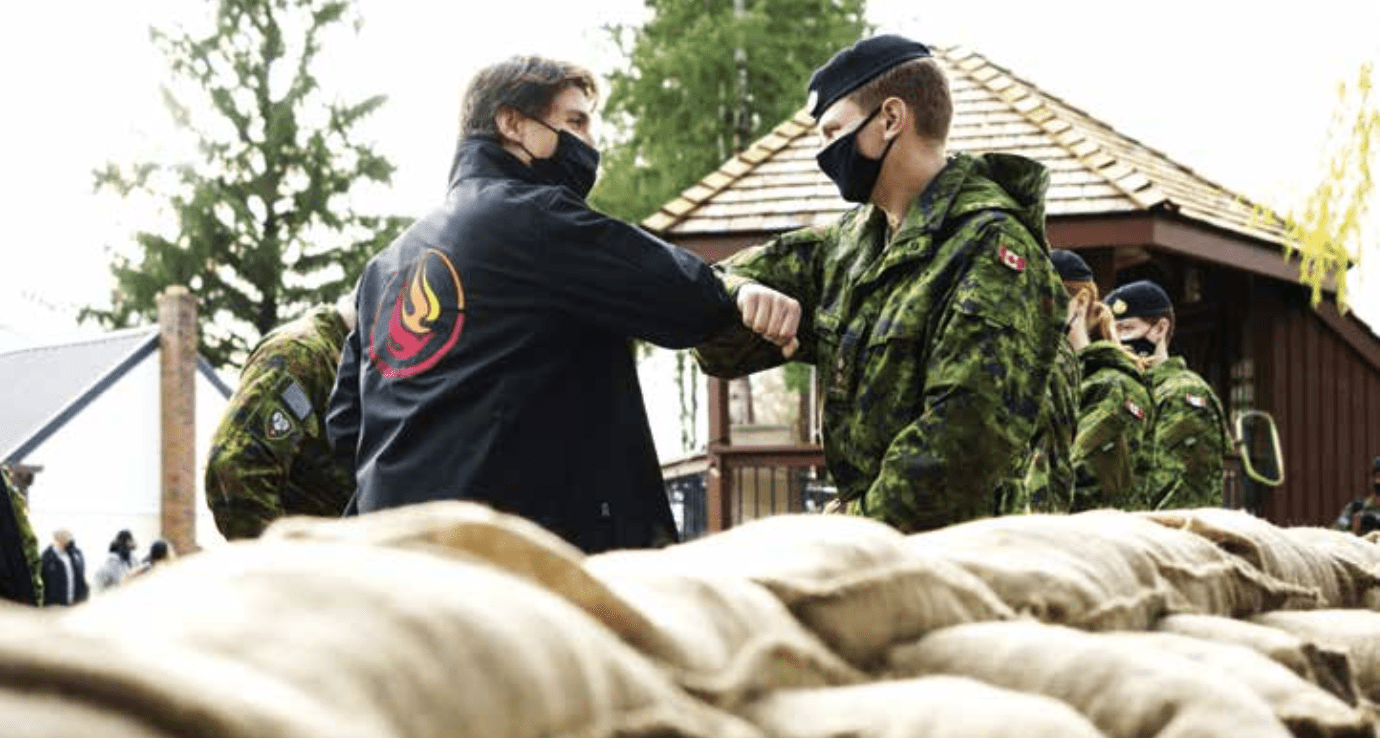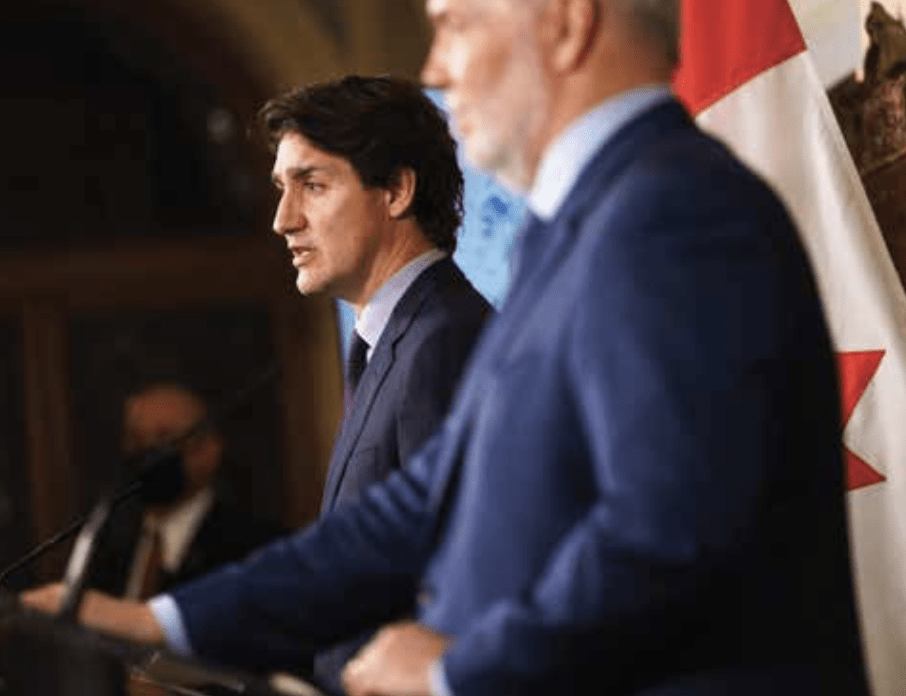The Accelerated Evolution of Climate Change Politics

The alchemy of science, propaganda, lobbying, political will and anecdotal evidence that has propelled the global politics of climate change since the Rio Earth Summit in 1992 has entered a new stage. Climate-linked disasters and their toll in blood and treasure have all but silenced the climate ‘denialism’ that protected the energy status quo and hindered policy progress for so long. Veteran political strategist and policy master Robin Sears looks at the new state of climate politics.
Robin V. Sears
It was the fury of a young teenager that began the shift in the debate on the climate crisis, helping to move it from a fear of a future disaster to a present nightmare. Greta Thunberg was mocked and dismissed by climate deniers as recently as three years ago. Her demand that the crisis be fought seriously — “Now! Today! Immediately!” — was sneered at by some as the naïve idealism of youth.
Three years of floods, fires, drought and savage hurricanes have seen the world turn. COP26 was the most successful — after a seemingly endless series of failures — global climate summit. It actually got members to agree to legal pledges of performance. But its success compared to its predecessors was to merely to rise above a very low bar. Incredibly, it was seen as a huge achievement to recognize that fossil fuels had to go, though the usual foot-draggers resisted even such an evident truth with great vigour.
In the jargon of the climate gurus, the work of the COP and nations around the world can be slotted into four or five buckets: “emission reduction”, “mitigation”, “adaptation”, “loss and damage”, and just transition. The implication is that there is a sequence moving from reduction to transition. There are problems with each.
Mitigation, meaning to reduce the severity of the impact of carbon emissions fueling global temperature rise, assumes we have taken the right steps to actually begin to reduce emission levels. We decidedly have not.
Adaptation implies that there is a wide range of policy changes, infrastructure improvements and areas to invest in ‘adapting’ to climate change. There is not much ‘adaptation’ a flat Pacific Island nation can do in the face of rising sea levels, except mass exodus.
“Loss and damage,” focuses on the current suffering of the global South based on the changes already being wrought by climate change; drought and flooding at the top of the list. Northern developed nations clearly have their own loss and damage issues today, and — as the insurance industry can attest — they are accelerating. Finally, a “just transition” is a euphemism for not expecting the developing world to pay for the climate sins of the rich North. It is, after all, Canada and other developed countries that lit the fire of climate crisis with decades of excess in relentless rises in coal and fossil fuel consumption. But giving India a break on how quickly they must end their own coal addiction does no favours to their own citizens — today choking on the world’s worst urban smog events — let alone to the health of the planet.
In other words, the categories are piling on top of each other, hitting faster and harder, and creating nightmarish challenges even in the richest nations in the world, today. What is the “just transition” for a British Columbia farmer who has just lost her house, her barns and hundreds of cattle to flooding? What “mitigation” is available to the hundreds of families burned out of their homes from Northern B.C. to Southern California this year?
Events over recent months in the Fraser River Valley and across Atlantic Canada have been like a daily drumbeat of how present and real the climate crisis has become. This creates new and dangerous dilemmas for politicians everywhere. They must pivot from rhetorical future commitments to daily climate crisis management. But if that future has now moved much closer, we have yet to seriously work to a broad consensus on the societal changes and costs it will impose.
B.C. spent nearly a billion dollars fighting fires in 2021. It will spend tens of billions more recovering from flood devastation, and then head into coming fire disasters once more. Flood proofing buildings, highways, underground transit, pipelines and rail lines across Canada will cost billions more. These are costs most governments thought could be paced over a decade or more. Now they demand attention today and they are in no one’s budgets; budgets already pushed more heavily into the red by pandemic spending than anyone could have predicted two years ago.

Conservative climate deniers here and in the United States have slowly been morphing into ‘climate delayers’ — “Yes, we must make changes but slowly and not all right now.” But many cling to their old prejudices and mythologies — the overwhelming abundance of them lubricated by a fossil fuel industry that has spent decades tilting climate policy outcomes — at the same time.
“The war on the car,” is a silly American populist slogan, copied by Mike Harris’s comms teams in Ontario in the 1990s, and then used by Canadian Conservative politicians from Andrew Scheer, to Doug Ford to Jason Kenney. It was hurled at those who fought to increase transit spending, used to defend new highways, and to resist bicycle lanes.
Premier Ford’s late and somewhat dubious pivot from climate denial to electric car promoter is undermined by his determination to build a massive new superhighway through the farmlands north of Toronto. Not incidentally, it will reward half a dozen property development families, each massive donors of his, by opening some of the most valuable agricultural land in Canada to suburban development. It will save mere minutes of commuting time.
The highway is so widely at odds with today’s climate crisis politics, it may contribute to his defeat in Ontario in a few months’ time. Alberta Premier Kenney, not surprisingly Canada’s last real climate equivocator in power, may face the same fate a year later for similar reasons. But here’s the rub: Justin Trudeau may also face a similar defeat, not because he is not a great climate crisis rhetorician; he is. But because over six years he has missed every climate target he has set, making Canada the worst among the G7 at controlling emissions, according to his own environmental commissioner in late November 2021. It seems very unlikely that his record will improve unless he, too, pivots; in his case from repetitive promise to observable delivery.
A new generation of voters will savage politicians with fake climate credentials — the Fords and Kenneys, among others — but it will also punish progressive politicians who fail to deliver on the climate crisis.
This is the nightmare political leaders in the developed world now share: do they tell the truth about the costs, the taxes, and the restrictions that a serious fight against climate change today will require — and face defeat from a terrified electorate. Or do they continue to fudge, deny, and delay, and then face defeat from an emerging voter majority who want the truth and action now? That is their binary choice as the political temperature on climate rises, along with the planet’s, as a result of our dilatory record to date.
Gasoline may rise by as much as 50 cents a litre over the next decade, as will taxes on the use of coal and other fossil fuels, as the only effective mechanism we have found to reduce fossil fuel use — pollution pricing — kicks in. The resource sector and heavy industry will face massive internal costs attempting to clean up their dirty businesses. Steel, cement, shipping, airlines and trucking — each huge emitters today — will be stretched to financial breaking points trying to meet new and tougher sustainability targets.
At least in terms of political will, the climate crisis is delivering regular disaster headlines that provide cover for tougher action today. The pushback from some cynics is, “Why should Canada push harder on climate when the big cheaters like China, India, and the OPEC+ nations won’t.” The answer from a chicken farmer in Abbotsford might well be, “Because if we don’t, more Canadians will die.” If hundreds of Toronto or Montreal subway riders get trapped in a flooded transit system, and many die — as almost happened recently in New York City — attention to India and China’s failures to get a grip on their coal mania will fade instantly.
If the Liberals were to act with sincerity in attempting to reach a multi-year, cross-partisan non-aggression pact on a set of politically tough climate measures, they could win the support of every Canadian political party, save one. They resisted any form of cross-partisan crisis cabinet at the beginning of the pandemic, opening them to unnecessary partisan blasts from all their opponents. Their refusal to seek wider counsel also led them into serious blunders, like trying to win the right to govern endlessly without Parliamentary approval. If they are now wiser about how to survive the intensifying climate crisis politics of today, they might re-think that hyper-partisan approach.
Two groups of senior advisors on climate might be useful. One would be composed of senior representatives of every party who would be provided with the latest data and analysis in return for their offering to work on a long-term cross-party climate strategy. The other, like the provinces’ “science tables”, could be made up of business, labour, academics and NGOs to provide feedback and counsel on the views of Canadian citizens. In late November, following the catastrophic floods in B.C., the Liberals announced a bipartisan crisis committee to be co-chaired by the two governments’ public safety ministers. This might serve as a model for a similar body with a wider agenda at the national level.
Such a consultative framework would provide the ability to build a wider popular coalition for tougher climate action, and constrain the most unhelpful partisan games. There appears to be some willingness among Liberals outside the PMO to stick their toe in these waters. Trudeau and his inner team seem as blinkered as ever.

The role of the Conservatives will be crucial, however. If they continue to walk a tightrope between Alberta’s angry demands for more fossil fuel and pipeline support, and the demands of a large majority of Canadians on climate, they will appear increasingly irrelevant and face certain failure as a potential party of government. The party may even once again divide. Along the way though, they could also do serious damage to a possible emerging Canadian political consensus on climate.
Erin O’Toole dangerously, but courageously, forced his caucus and party to drop their resistance to taxing pollution. The backlash he now faces on that issue and other policy reversals may yet end his leadership. If, however, he successfully faces down his internal opponents, and takes the next necessary steps on climate, he and his party will return to competitive status. Not without some possible defections and bloodshed along the way, admittedly, but emerging with a more electable party and vision.
While Kenney and Ford are likely losers because they cannot pivot to being seen as genuine climate crisis fighters, the federal Conservatives have more options and flexibility. There is a large potential audience, fed up with Trudeau’s performative politics, who would be open to a more business-friendly, climate-serious option. The Tories might study the German conservatives’ very successful record on climate, or even Boris Johnson’s more recent efforts to claim the climate fighter crown in the UK.
The next two years of the crisis will be critical for Canadian politicians and for the world. Here, we will have three powerful provinces — Ontario, Quebec and Alberta — going to the polls. The victors will be those who have delivered believable visions of a sustainable Canada, and how they intend to get there.
Globally, the COP gang will re-convene in Sharm El Sheikh, the Egyptian resort town on the Red Sea, this fall. Expectations of meeting a much higher bar of agreements and commitments will be hard to resist. It may be the last time for some years that an American administration can show the global leadership on climate, and lock in US climate commitments, that it did in Glasgow. The likelihood that the more climate-obstructionist GOP, will win back control of the House of Representatives and possibly the Senate in 2022 keeps rising.
A Canadian multi-party consensus on a national climate strategy with credible dates, targets, and policy tools, would mean our next election would turn more on who voters trust to deliver, than who can out-promise whom in another round of climate-promise posturing. Justin Trudeau will need to do a lot of real climate delivery between now and then to win that trust competition. The New Democrats and the Greens — despite their recent woes — would seem to have the best starting positions in such an authenticity contest.
The most interesting player in such a contest would be the Conservatives. Failure to continue in the direction of climate integrity could reduce them to a rural and Prairie rump. Moving quickly to fashion a “Conservative climate strategy” whose emphasis is on protecting Canadian families and businesses from the losses and damages they now face, one that rewards sustainability-serious business and investor partners with financial and political support, and one that makes believable pledges to meet credible climate targets, could be transformative to their appeal as a revived party of government.
Erin O’Toole might, perhaps, place a small plaque above his desk declaring simply, “Carpe Diem!”
Contributing Writer Robin V. Sears, former national director of the NDP and later Ontario delegate general to Asia, is an independent communications consultant based in Ottawa.
